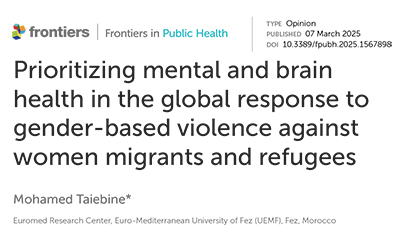An opinion article draws attention to the profound mental and brain health consequences experienced by migrant women who survive gender-based violence (GBV). The author explores various aspects of the issue, examining both the psychological and neurological impacts of these traumatic experiences and their implications for policy and clinical practice.
“There is an urgent need to implement neuropsychological and mental health services for migrant women who have experienced GBV and are at risk of developing mental health disorders such as anxiety, depression, and PTSD,” the author emphasizes. These conditions, he explains, may increase neuropsychological and neurological vulnerabilities.
Moreover, access to essential services and support is often obstructed by barriers such as cultural stigma, language difficulties, and fears of deportation. The author advocates for a multidisciplinary and salutogenic approach, highlighting that such a strategy not only addresses immediate crises but also aims to prevent future incidents and facilitate the long-term recovery and well-being of individuals at psychological, neurological, and social levels.
In this context, the EU-MiCare project underscores the importance of collaboration among professionals from different disciplines and provides targeted training programs to enhance their ability to deliver effective support.

